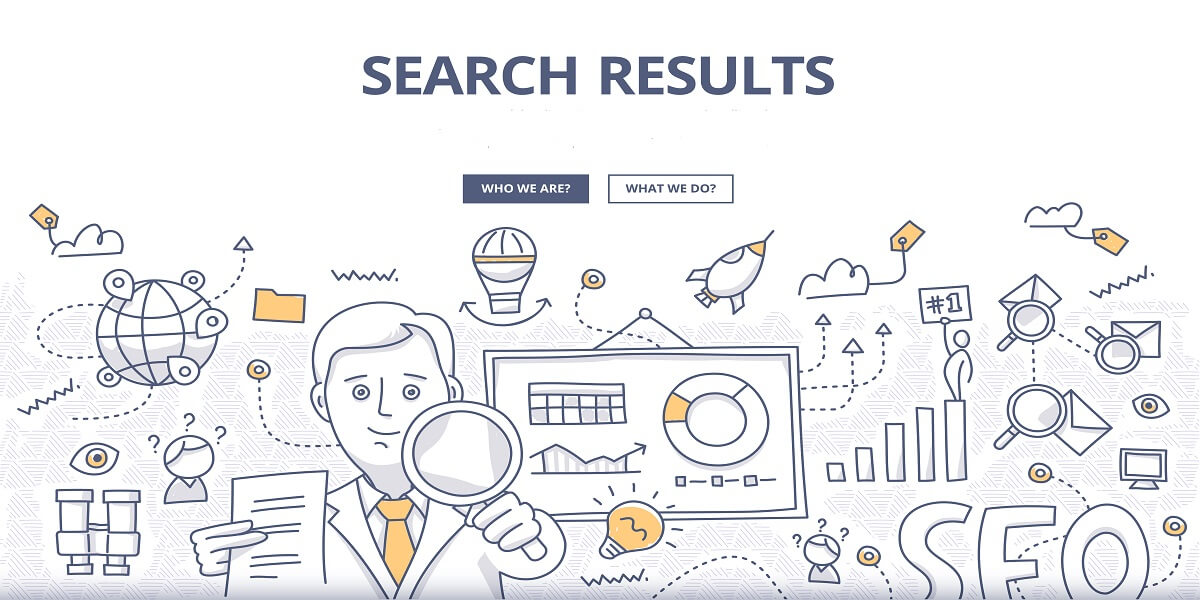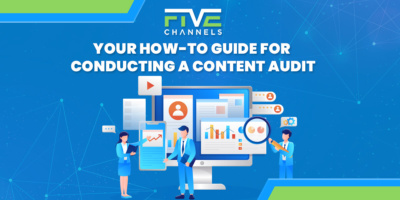Unless you are only trying to market to a small town, where everyone for miles knows your name, online marketing is a strategy you should master.
We’re all aware content is important, but there’s more to it than just creating engaging material. For those who scoff at the effectiveness of online marketing, take a look at the stats.
91% of us are using the web for research before we make a decision. 93% of us don’t bother moving past the first page of search results. 65% of us trust what we’re reading online.
If you don’t know what you’re doing, you’re leaving a lot of potential business to get scooped up by your competition. Let’s change that.
Here are a few steps you can take to boost your local search rankings.
 Boost Your Local Search Rankings by Claiming Your Google Business Listing
Boost Your Local Search Rankings by Claiming Your Google Business Listing
Local SEO for businesses should start with everyone claiming their Google Business Listing. However, there seems to be some confusion surrounding the listing.
Just because there are a few photos, the location is listed, and even a few people have left reviews, it does not mean you’ve claimed your business listing on Google.
Nor does it mean that the listing is working half as effectively as it will when it’s filled out properly. You’ll know you’ve claimed your listing properly when you receive a postcard in the mail with directions to call a number and enter a code.
Once you’ve claimed that listing, it makes a lot of sense to go ahead and claim it on all the major search engines. Make sure the content, links, photos, and information for each listing are exactly the same.
The more search engines who can find your business, the easier it is for your customers to do the same.
Use Search-Friendly URLs
One way to show up higher on local SEO rankings is to start using search-friendly URLs. For example, my blog URL is https://fivechannels.com/blog/ and it’s a great example of a search-friendly URL.
One reason is that it’s crawlable, meaning search engines are permitted to examine the contents of my web page and index it. Another reason that URL works well is that it’s perfectly describing exactly what someone can expect to find on that page, in this case, my blog.
By doing this, it allows search engines to confirm that the page’s content is a good match to the URL. That can positively affect your local small business web page search rankings.
Just like if your page content isn’t a good match to your URL, it can negatively affect its rankings in a search.
To improve your local SEO rankings, try your business name or brand in the URL. You can also use your location such as your city name, neighborhood, and even nearby destinations in the URL.
Lastly, try including your products, services, or any specialties in your URL.
Create landing pages to help you locate and convert locally-based customers. That way, you can easily determine if your marketing efforts are working to improve local SEO.
Place Keywords in Your Page Titles
Another place you need keywords in order to optimize your local small business web page search rankings is on your page titles.
A page title is the title you type in when you begin a new page or post. Page titles are the most important headline on your page. As a result, it’s also the most important place to use strong keywords to accurately describe the content of the page.
Use keywords that real customers use when searching for a business like yours in your area. If you need help, ask your customers what keywords they used when Googling your business.
Write Engaging Content
One easy way to improve local search rankings is to write engaging blog content. The problem is, many businesses think they’re writing great content, but aren’t.
One way to check is to take a look at your bounce and exit rates. If you see high bounce rates for the content you’re posting, it’s a sign your intended audience isn’t as engaged as you’d like them to be.
However, there are a few things you can do to improve your local SEO rankings. Write great content that’s entertaining, passionate, educates customers, and is unique.
Make sure to include high-quality images. Include graphics and infographics where and when appropriate. Customers don’t just want to read written content, they want to view interesting and informational images as well.
Speaking of interesting, make use of different colors to capture your visitor’s eyes. Include videos, since it has been projected that by 2019, 80% of all internet traffic will be for videos.
Don’t forget to add internal and external links to similar or related content.
Learn How to Understand & Use Your Stats
There’s no point in engaging in any type of marketing if you have no idea how to measure its success. It’s a waste of your time and money.
Learn how to improve local SEO for businesses by taking a look at your web site’s stats. It will provide you with a lot of valuable information.
You’ll be able to see the location of where visitors are finding you. That will show you whether your local SEO efforts are working or not.
End rates and bounce rates will show you how successful your website is at engaging customers to spend time on your website. You’ll find out which pages are drawing in the most amount of traffic and which pages are virtually ignored.
Optimize Videos & Photography
People love videos and photography because those images speak to us in ways that words often can’t. The exact opposite is true for search engines.
Search engines can’t “see” the content in your videos, graphics, or photography. Which means you need to take steps to optimize them.
To improve local SEO, use local photography or videos, and then use keywords that reflect that. Choose local keywords and place them into its title caption or the “ALT” tag that’s part of the source code.
Most of the time, when you upload a media element, it allows you to add descriptions for captions, element titles, etc.
You also have to remember that photos, graphics, and videos take up space on your site. If the content file is too large, it might slow down your website.
Since we’re only willing to wait 2.7 seconds or less for a website to load before we move on, you’ll have to reduce the file size as much as possible. Just don’t compromise its quality to save on space.
Be Social
To improve your local SEO, make sure you’re on social media. If you’re not, choose two or three different sites that are most likely to be the social media sites where your customers spend time.
A B2B business will find that LinkedIn is a great source for them to find potential customers and share their valuable information. An ice cream shop might find their local audience is found on Pinterest, Instagram, and Facebook where it’s easy to post photos of themselves enjoying a sundae.
However, it’s not enough to start and maintain a social media page for your business. You must connect those pages to your website.
Once you’ve created your social media profiles, add those social media page links to the top or bottom of your menu bar on your site.
Don’t forget to add social media sharing buttons on relevant pages. The easier it is for customers to share your content, the more likely it is they’ll spread the word about your business.
Fill Out Your Meta Titles & Description
To improve local small business web page search ranking, don’t forget to fill out your meta titles and meta descriptions. Do this before you publish each web page.
The Meta tags are designed to tell search engines what the content of your page is about. These Meta titles and descriptions don’t appear on the page, but rather in the source code.
However, they will appear on search results when the page is included among them in an online search. For best results, use the unique keyword you chose for the page. Use them in the URL, and the title, for both the Meta title, and description.
Often, searchers will read the description and realize your site is exactly what they are looking for.
Participation & Sponsorship
Another way to drive more local SEO is to get involved in your community directly. You can do that in one of two ways.
Throw an event at your place of business and invite everyone. You can spread the word using social media, sending out an e-vite, or sharing the information on your website.
You can also partner with other businesses and have them cross-promote the event. Joining local organizations where your business will be mentioned and providing a link back to your site will also improve your local SEO.
You can consider joining a sports team or sponsoring one. If you are getting directly involved, you can also sponsor activities, local events, organizations, or clubs.
Besides getting mentioned via links and cross-promotion, you’ll also become newsworthy, thereby getting free PR, which in turn means even more backlinks from local news websites.
Add Google Maps to Your Website
Google Maps is a life-saver. It helps us figure out where we are when we get lost.
Consumers also love Google Maps to help us find locally-based businesses. If your business isn’t currently being found on Google maps search results, you’re losing out on a ton of potential business.
In 2014, Google maps was averaging 1 billion monthly users. Those numbers have only risen in the past four years and will continue to rise as we depend more on our smartphones to conduct our lives.
If you’re a local business looking to improve local SEO, make sure to include a Google maps page on your website. Not only will it make it easier for everyone to find you, search engines will also rank your site higher.
Also, users can use Google maps as a way to send directions to your business to their friends easily.
Make sure to be as detailed as possible with directions. You want to make it impossible for someone to get lost, so don’t be afraid to be precise. Go ahead and share which highway is the best and which exit they need to take. Point out the gas station directly across the street from your business.
Remind potential visitors that you’re only a short 15-minute drive from that popular attraction that’s commonly recognized in your area. You can even add links to these businesses.
You’ll show search engines your regional connections and improve your local SEO rankings.
Be Consistent
While performing all these tasks will definitely help improve local SEO for businesses, if you’re doing any or all of it sporadically, you won’t receive the results you want.
Consistency is definitely the key to successful local SEO. Make sure that your company name, address, and phone number is listed exactly the same everywhere it’s posted.
Keep your brand consistent by posting the same logo on your social media pages as your website. People become trusted customers once they can recognize you easily.
Write content on a consistent basis. It’s not enough to write one blog article every month or two. Instead, strive to write a new post at least once per week.
Have something new posted to your social media sites every day.
Use internal and external links that are relevant to the information you are posting. The more credibility you create from internal and external sources, the more some of your local SEO is based on word-of-mouth referrals.
Also, keep searching for locally-based keywords and phrases that will help your customers find you when doing a search. Just don’t overstuff them.
Get A Professional Assessment
It’s not always easy to take a critical look at your own work. Most of us miss something that’s fairly obvious to everyone else.
If you want to improve local search rankings, let me give you a free digital marketing review. Click here to get started.
Owner and Chief Marketing Officer, Jason Hall, and his team specialize in creating brand awareness / traffic and lead generation / marketing funnel and conversion optimization, while utilizing the appropriate marketing channels available within your industry. With diverse clients throughout the world, Jason's team is well connected within many industries to assist with your marketing strategies. With no long term contracts and various levels of service, Jason's team will increase the quality of your online traffic, leads, and sales.
Free Website Audit Tool
See how well optimized a web page, landing page, or blog post is for an exact keyword or phrase
About the author...
Located in the heart of the Emerald Coast - Destin, FL, founder and Chief Marketing Officer, Jason Hall, and his team specialize in creating brand awareness / traffic and lead generation / marketing funnel and conversion optimization / and PR campaigns, while utilizing the appropriate marketing channels available within your industry.
With diverse clients throughout the world, Jason's team is well connected within many industries to assist with your marketing strategies. With no long term contracts and various levels of service, Jason's team will increase the quality of your online traffic, leads, and sales.









